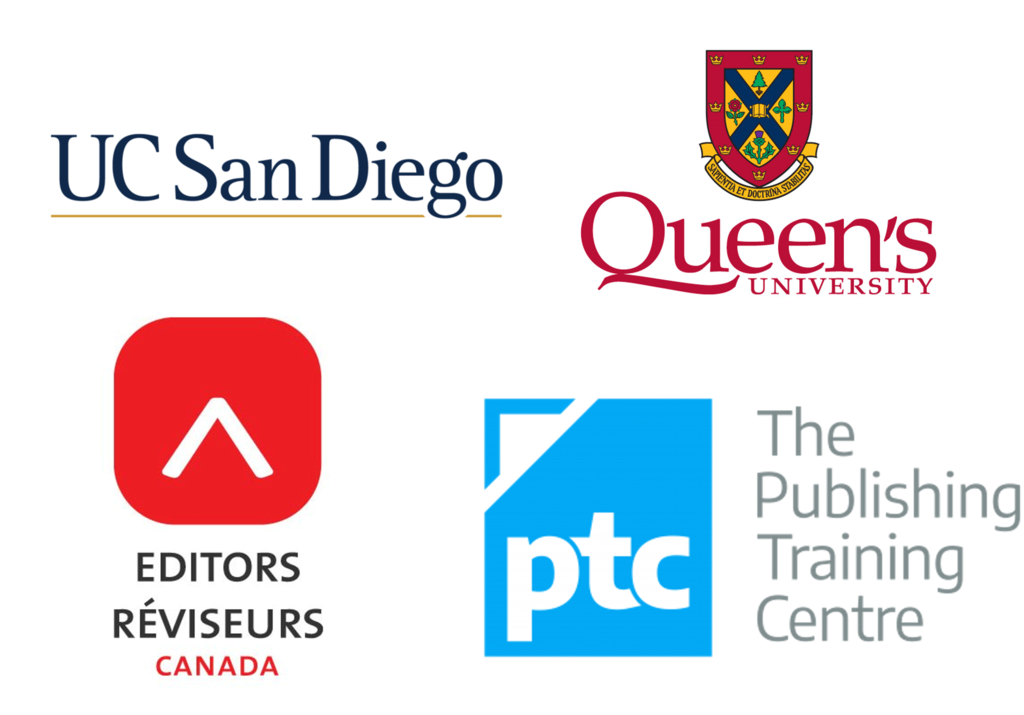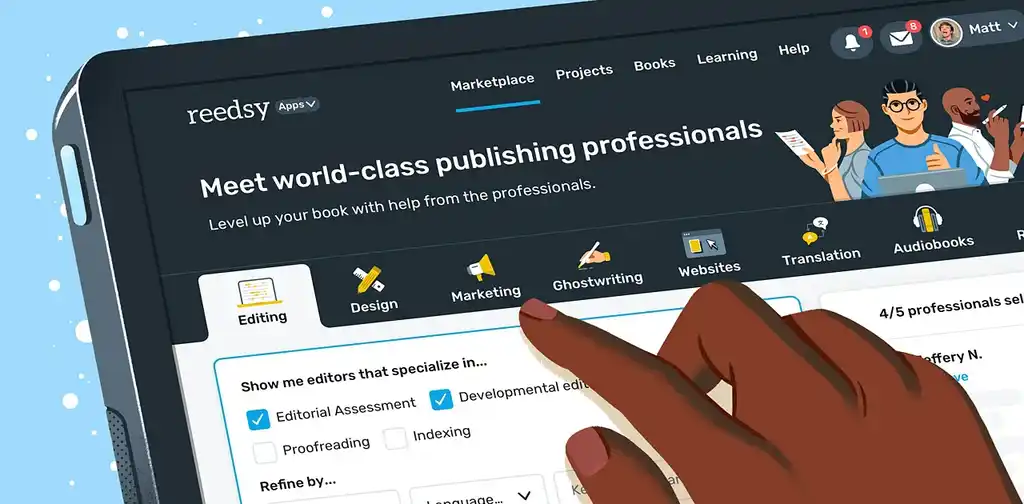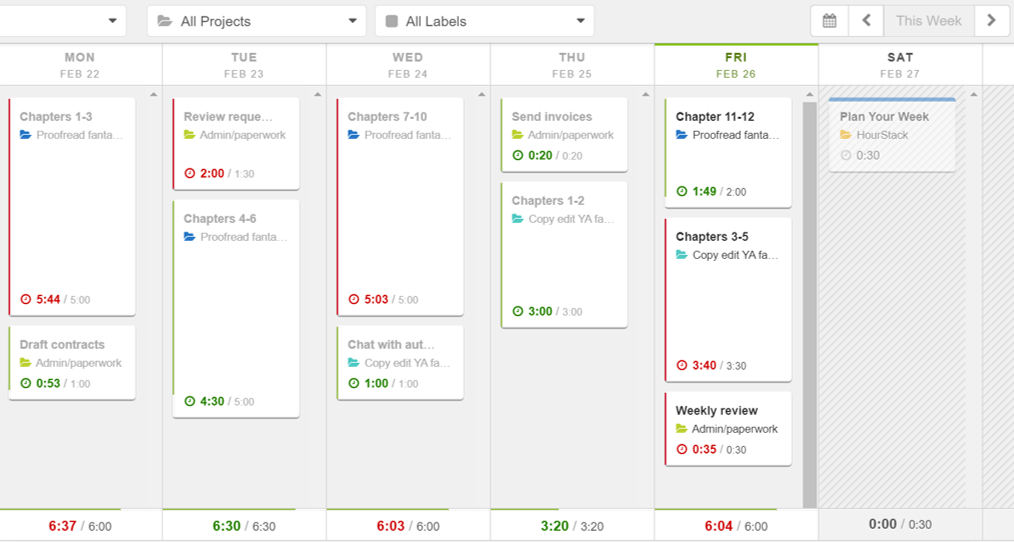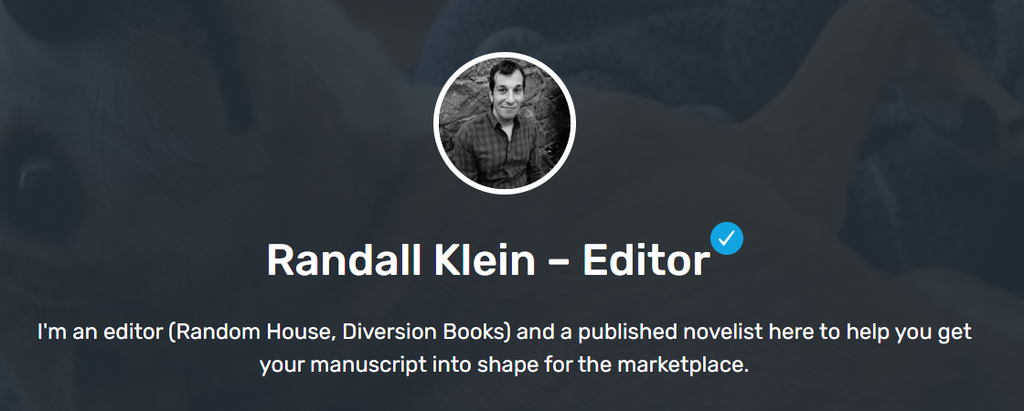Blog •
Last updated on Mar 13, 2024
How to Become a Freelance Editor in 6 Simple Steps
Savannah Cordova
Savannah is a senior editor with Reedsy and a published writer whose work has appeared on Slate, Kirkus, and BookTrib. Her short fiction has appeared in the Owl Canyon Press anthology, "No Bars and a Dead Battery".
View profile →Linnea Gradin
The editor-in-chief of the Reedsy Freelancer blog, Linnea is a writer and marketer with a degree from the University of Cambridge. Her focus is to provide aspiring editors and book designers with the resources to further their careers.
View profile →This article was written in collaboration with professional freelance editors Perrin Davis, Clem Flanagan, and Christina Roth.
In the publishing industry, a freelance editor is a professional contracted to improve or correct texts or manuscripts on a project-by-project basis. This is opposed to in-house editors who are employed by publishing houses or magazines on a full-time basis. As free agents, there are two parts to every freelance editor's job: the craft of editing itself — from developmental editing to copy editing and proofreading — and running a one-person business.
To help you on your path towards freelance editing, we’ve consulted some of the top freelance editors here at Reedsy and put together 6 steps to follow to start your own editing business.
Psst… this article assumes no prior editing experience. If you’ve been editing for some time but specifically want to know how to go freelance, you can skip ahead with the table of contents.
1. Understand what freelance editors do
Editing isn’t a uniform kind of work. As an in-house editor, your normal day might involve a combination of editing, author care, and acquisition work. You might work closely with the authors themselves or simply report to senior colleagues. You also operate within the framework of the publishing house’s overall budget, and creative direction, and your work schedule will be shaped by the demands of your employer's publishing calendar
Freelance editors, on the other hand, work independently and can thus shape their work as they please. This typically means that you work more directly with clients (often indie authors and occasionally publishing houses) and typically focus purely on editing.
Editors may perform all types of editing, or specialize in one or two of the following:
- Developmental editing: addressing a manuscript in terms of overall style, structure, plot, and characterization.
- Copy editing: detecting and addressing inconsistencies in language, voice, and errors in spelling and grammar.
- Proofreading: performing the final check for typos and manuscript formatting errors.
You can read more about the different types of editing here.
Q: How did you determine your niche or specialization in editing to attract the right clients?
Suggested answer
It was a combination of choosing the areas I most enjoy working in (what feels the least like work!), along with what I had experience in and where I thought I could best use my skills.
Lauren is available to hire on Reedsy ⏺
Skills and qualifications
Regardless of your specialization, there are a few core skills all editors need. Firstly, you need to be comfortable handling large amounts of text. This means having a strong grasp of storytelling techniques, language, and style, as well as being up to date with market and genre trends. On a technical level, you also need to be literate in word processing programs such as MS Word. Besides this, you’ll need strong interpersonal and communication skills to ensure that your feedback is delivered to clients in the best way possible. Lastly, you’ll need to be well organized and good at working towards deadlines.
Freelance editors, in addition, also need to be strong networkers, self-promoters, and business-minded. You’ll need a great deal of self-discipline and organizational skills to maintain the administrative aspects of your business while leaving enough room for creative tasks and downtime.
You don’t need any particular university degree to become a successful editor, though a vast majority of editors have a background in the humanities, majoring in subjects such as English, Journalism, or History. A publishing degree can be helpful if you want to transition from another field, and some knowledge of business administration can be helpful for freelancers. However, neither is strictly necessary. Rather, most employers and clients will be looking to see if you have relevant experience.
2. Hone your craft and gain relevant experience
When we asked our Reedsy freelancers what their best tips are for how to hone their editing skills, they unanimously advocate for simply putting in the time. Though you can study and learn the theory of what makes good writing good, there’s no replacement for lots and lots of practice. But if you’re coming into the field of editing as a complete beginner, it can be hard to find opportunities to practice and gain the experience employers are looking for. So here are a few things you can do to take matters into your own hands:
Read a lot
It’s been said many times that you need to read a lot if you want to become an editor, but it’s absolutely true; you not only need to know how storytelling works on a fundamental level and have an innate sense of what’s good and bad writing, but you also need to love reading enough to sustain you on your career path when other parts of the job get tough. That said, there’s a difference between reading for enjoyment and reading actively.
Practice editing published books
Although the books on your shelf have already been edited by a professional, they can be a great way to practice editing if you can’t get your hands on rough manuscripts. As you read, always do so with the intent of breaking down the different components of the book. Write in-depth reviews that focus on e.g. characterization, plot, or language, and analyze what worked, what didn’t, and how you would have edited it.
You can also practice writing reader’s reports, which are usually 1-2 pages long summaries used by literary agents and acquiring editors when presenting a manuscript to publishers or other people who haven’t read it yet and are involved in deciding whether to take it on. These usually involve both factual descriptions of the piece — the title, word count, author credentials, and plot summary — and some unique selling points, but should ultimately also contain an analysis of the piece’s strengths and weaknesses, as well as your recommendation for or against publication.
Try beta reading
Beta readers provide feedback on unpublished manuscripts, often for free. Though they’re not professional editors or critics, beta readers give insight into how the intended audience will receive the book and can be invaluable in detecting errors, plot holes, and inconsistencies — which is great practice for any editor. If this is something you’d be interested in, there are various Facebook groups and Reddit threads you can join. You can also offer to edit your friends’ writing and practice how to give constructive feedback in a more familiar setting.
Take courses
If you want to try something more concrete, you can sign up for courses to boost your skill set. There are several free editing courses that you can audit on websites such as Coursera and Udemy, but you can also look into paid alternatives that offer certificates. You can also take courses in business administration or self-employment finances to prepare yourself to go freelance.

Another option is to sign up for creative writing courses. This can be particularly useful not just because you’ll be taught the building blocks of storytelling, but because creative writing programs tend to include a lot of editing and feedback sessions between classmates.
Get a relevant degree
Though not strictly necessary, as mentioned, many editors come from a background in the humanities, and a university degree is often required for entry-level positions in publishing. In addition, you can make the most of your time at university by joining the university newspaper or creative writing societies where you can practice editing but also get some bylines to boost your portfolio.
3. Look for entry-level editing jobs
Once you’re confident that you have the foundational skills and passion to become an editor, it’s time to test your wings by looking for paid opportunities.
It should be said that many freelance editors start their careers in-house before going freelance — though it’s not impossible to start at the other end — as it helps you gain industry insight as well as a network of clients and contacts that can be helpful when you start your own business.
Error No answers could be found.
Internships and part-time positions
Ideally, you’d land an entry-level position in a publishing house fresh out of university, but the reality is that, despite being labeled as entry-level, the competition for these positions is fierce, and employers are likely to expect concrete and verifiable evidence of editing experience. That’s where internship programs and part-time positions can come in, helping you get your foot through the door.
You can search for internships and part-time opportunities on sites like LinkedIn and Indeed or your university’s job board, but you can also go directly to your favorite publisher’s website or social media, where they often announce new opportunities.
Paid freelancing gigs
For newer editors with less experience who want to try their hand at freelancing right away, general sites like Upwork or Freelancing.com are accessible alternatives to curated sites. They give access to a variety of opportunities in the industry, though they are prone to bidding wars where editors keep lowering their rates in the hopes of landing a gig.
Considering that your portfolio may not be extensive yet, you may have to start on the lower end of the scale in terms of rates and the types of projects you take on and slowly work your way up. But remember that keeping your prices low is not sustainable in the long run, and you should still charge a reasonable rate (more on this later).
Join publishing-specific marketplaces
One way to rise in the freelancing world is to join more curated marketplaces. If your portfolio contains highly praised published books or if you have a background with reputable publishers, consider signing up to publishing-specific marketplaces such as Reedsy.
By listing your services with us, you can showcase your profile to tens of thousands clients in need of editorial services. We aim to make it as easy as possible for authors and professionals to meet and collaborate via our marketplace.

JOIN OUR NETWORK
Supercharge your freelance career
Find projects, set your own rates, and get free resources for growing your business.
Joining curated marketplaces also boosts your reputation. Their vetting processes help to assure clients that all professionals on-site are who they say they are and experts at what they do. A targeted marketplace also offers an easy way to be discovered by serious clients with high quality work and can help cut down on admin tasks like billing and chasing invoices, as this is taken care of on-site.
4. Network and build a client base
At all stages of your career as a freelance editor, but perhaps particularly in the beginning, networking is vital to building your client base. Here are some tips on how to get your name out there:
Be patient, but proactive
Small businesses don’t grow overnight. If you have some relevant work experience, you might have prior leads that you can start working with. But if you’re coming into freelance editing as a beginner, it’ll take some time to get any number of clients, so don’t let the wait discourage you.
What you can do to quicken the process is to be proactive; you have to put yourself out there if you want to gather new clients! That means networking with other professionals, asking for referrals, and even outright advertising yourself. Freelance editors are always happy to share resources and their experience, and boost fellow editors, so don’t be shy.
Check out our webinar on how to build your freelance client base for more advice.
But even with this proactivity, it might take time. For editor Clem Flanagan, it took over a year of networking via workshops and conferences (both on- and offline) to jumpstart her full-time freelance editing business.
Frequent Twitter and other online forums
When it comes to the world of publishing, there’s no better social media platform for you to be on than Twitter (X) or Reddit. There you can find an active community of freelance editors to network with and a vast pool of writers to market to.
If you’re interested in talking to other editors about how they manage their freelance business, follow the accounts of editing societies like the EFA to get updates about their conferences and monthly chats. You can also follow well-known publishing experts like Sam Missingham and Louise Harnby — the latter of whom has an amazing editing podcast that you should definitely check out.
If you want to meet new clients, follow hashtags and threads like #Writing and #WritingCommunity to see what authors are talking about. You’ll find that many of them will ask questions that you can answer as an editor — these are as good a chance as any to demonstrate your expertise to potential clients.
Attend on- and offline conferences
Though social media is a great way to connect, few things can beat in-person networking at events and conferences. These can result in some of the most personal, valuable connections you make in the publishing industry, which means they’re a great opportunity to generate positive word-of-mouth around your editing business. Keep an eye out for the latest book festivals around you and cut out some time to attend them! And if you can’t make it in person, there are plenty of online events you can sign up for as well.
Join vocational societies
We’ve already mentioned following societies like the EFA or CIEP on social media for the latest industry news, but you may also want to consider joining them. Membership will often give you access to job boards and upskilling opportunities, not to mention that you’ll be able to chat with fellow editors who can help you keep your ear to the ground when new projects come up.
Q: How did you build an editing client base when going freelance?
Suggested answer
I started with getting in touch with all and any contacts I had at previous employers or with previous publishing colleagues who had moved on to new companies. At the start I took on whatever work was available and then started focusing on a niche once I had enough work coming in. I also joined my national editor association (IPEd) and created an entry on their directory, and joined an independent network of editors that had a directory. Word of mouth worked best for me as time went on, but I also engaged with social media from a business point of view, set up a website and networked in general with the publishing and author communities.
Lauren is available to hire on Reedsy ⏺
Be communicative
A huge part of networking is simply having casual conversations with colleagues and industry people, but don’t discount the benefits of going the extra mile for your clients too. As a freelance editor, you’ll often work with new and self-publishing authors who are likely to need support navigating the publishing process. To be clear, we’re not saying that advice and consultancy are part of your job description, but you can support your client on this journey by being communicative.
For instance, you can explain industry jargon, reply to authors’ messages as soon as possible, or recommend other freelancers you know who could provide further assistance. If suitable, this is also an opportunity to suggest a follow-up collaboration that can turn into a long-term work relationship. And if your client has a positive experience working with you, they’re more likely to recommend you to their other writer friends.
Now, let’s discuss how to price your work.
5. Set your rates according to industry standards
Pricing is crucial for freelancers: it can determine whether or not your business stays afloat. You want to set freelance editing rates that accurately reflect the skills and experience you bring to the table.
Novice editors working on a freelance job typically charge about $25/hour, while more advanced or established editors may charge upwards of $0.04 per word, depending on the type of editing and genre (roughly $50/hour). Note that as you gain experience charging per hour might be detrimental, and you may want to consider charging per word instead.
But even if you’re a beginner, don’t underestimate your abilities! “If you're good at what you do, you should charge a fair price, not what you think the author expects,” editor Christina Roth explains. “If you charge far less than other freelancers, you could risk looking cheap and inexperienced.”
You can learn more about how to set your editing rates in this article.
Charge in installments
At Reedsy, we encourage freelancers to get some percentage of their total fee paid upfront. The rest will automatically be divided into equal installments, depending on how many of them you want to have. This way, you can establish a committed relationship between you and the client, as both are held responsible for their end of the deal.
On Reedsy, you choose the number of installments and the fee is automatically divided into a schedule and paid out via Stripe.
As for other methods of payment, consider an electronic wire transfer or a virtual payment service such as Venmo for convenience and flexibility. Remember to keep a record of your invoices — you can download our free invoice template here and use it to save time.

FREE RESOURCE
Invoice Template
Provide billing and payment details with this professional template.
Raise your prices frequently
Pricing is one of the trickiest parts of being a freelancer as it can be hard to know whether what you’re charging is appropriate or not. Many freelancers struggle with asking what they’re worth. Having a network of other freelancers to discuss with can help, but it’s also important to experiment and raise your prices frequently until you feel like you’ve hit a ceiling and the types of clients that you want to work with are starting to get priced out.
It’s all about fine-tuning, adapting, and staying flexible in your business.
Stay organized
Organization is important to running any business, but especially one that operates virtually. For every freelance editing job you take, you'll need to keep track of your schedule, forms, and correspondences. All these help you keep your record straight with the client in case any disagreement crops up; they’re also important for official purposes.
Organization can also prevent missed deadlines. Turning in edits even a day late can harm your reputation, so a meticulously kept schedule is necessary. This will become all the more helpful once you have multiple projects on your plate at once. Consider using a time tracker to better gauge how long each task will take for future planning.

A detailed record also helps you manage the administrative side of your freelance editing business in a headache-free and timely manner. Invoices are needed when you file your taxes — you don’t want to be scrambling for paperwork when the deadline approaches.
6. Finetune your freelance business
At this point, you should have a solid foundation to stand on as a freelancer, but the beauty of freelancing is that the rest is entirely customizable to your needs and wants. You may have enough work and clients to pay the bills, but now it’s time to narrow it down so that you can consistently get gigs that inspire you.
Q: How do you balance editing work and the business side of freelance editing?
Suggested answer
I am always trying to think about how to make my work more efficient and how to charge prices that are fair for the client and reflective of my time and skill. This starts with how I structure my projects. My basic structure is very simple, with a 50% deposit and then one final payment, but I am open to flexibility if it helps a client. I use Freshbooks and find that it's most efficient to group all bookkeeping tasks into a 1-2 hour period every few weeks. When I update my books every few weeks, it helps me catch any payments that I have missed or (rarely!) any projects I have neglected to follow up on. I don't let myself get too far behind after one April where I found myself sitting on the floor, surrounded by tax documents, crying. Ha! Reedsy really helps with the "business side" as it takes care of a lot of marketing and payments are automatic.
Tracy is available to hire on Reedsy ⏺
Determine your niche
Every book genre has its own conventions. Some, like cookbooks, are highly specific in style and content. Others might be less demanding, but they’d still have some particular conventions and tropes. Authors like to work with editors who are aware of relevant conventions, so having in-depth knowledge of one or two niches can be very beneficial for your editing business.
As such, analyze books in your target genres, see what readers do and don’t enjoy, and maybe even go beyond the world of books where appropriate. Take editor Perrin Davis, for example. When her publishing company acquired a cookbook imprint, she dove into the culinary world so she’d be able to give her authors the benefit of insider knowledge.
“I learned as much as I could about food, mostly in the interest of making myself a better cookbook editor,” says Perrin, who found it a humbling but worthwhile experience. “My lesson is this: embrace each challenge, because something that seems insurmountable at the time might end up being your specialty.”
Curate your portfolio
If you know what type of projects you want to work on, make sure that your portfolio reflects that. You may have an impressive list of romance titles in there, but that may not help you if what you really want to work on is biographies and memoirs. So, make sure to highlight the titles that you’ve worked on that are similar to what you hope to work on in the future, and be clear in your communication with clients. You may lose out on a couple of potential clients by narrowing down your scope, but you will find more projects that are particularly suited to your skills and passion.
Similarly, as you build your experience and expertise in one area, you can and should be more selective with the types of jobs you accept. Life is too short to work on projects that you tolerate when there is a market out there for you to flourish in. If a project comes along that doesn’t quite intrigue you, utilize your network and suggest another freelancer who you know will enjoy the work more. Chances are, what goes around comes around.
Perfect your online presence and brand
Part of being more selective with the jobs is to clearly communicate what you’re looking for through your online presence before clients even reach out to you.
A professional website or freelancer profile is a must for any freelance editing business. Your website needs to reflect your best professional work and your personality in order to appeal to clients. Compatibility in tone and work style can sometimes be as important as your testimonials — authors like to know they’ll be working with someone with whom they are comfortable communicating.
On Reedsy, we encourage freelancers to be as specific as possible in their profiles as this helps authors find the right match when they’re browsing our marketplace. It also helps you weed out the people who are not the right fit. But rather than simply deterring clients you don’t want to work with from reaching out, think about clearly and enthusiastically communicating what type of projects you do love working on.
Next to a solid work portfolio, you should also have a professional but friendly freelancer profile that introduces you as a person, rather than just an editing machine. Here, you can talk about your life, where you live, and even your pets. But, as freelance designer Colleen Sheehan states, your online presence is not actually about you:
“This is about your clients. What can you do for them? What have you done for other people like them in the past? What can they expect to receive if they hire you? Once you turn the focus away from yourself in this way, it gets a bit easier to write.”
Reedsy editor Randall Klein’s profile photo also demonstrates a good balance between friendly and professional — and for the eagle-eyed visitor, you can see that he’s a dog person based on the background photo; a nice, personal touch.

I'm a professional editor with ten years in the publishing industry under my belt (Random House, then Diversion Books). I have edited authors across genres, with a focus in mystery / suspense / thriller and romance. I am also a published author, with my book, Little Disasters, published by Viking in May of 2018. After thirteen years in New York, I now live in Charlottesville with my wife and our very photogenic dog.
Segment clients
As you begin to pick up projects, you’ll get a variety of clients, all of whom have different needs. It can be helpful to segment these writers into groups so you can address them appropriately.
For instance, you can categorize them by their level of experience — a new author will need more guidance through the publishing process than someone who's done it before. You might want to share resources on how to outline their narration with the former, but probably not with the latter.
Other criteria for segmenting your clients include:
- Subgenre (e.g., psychological thriller, police procedural…);
- Whether the author is self-publishing or querying an agent;
- Whether they’re writing a series or a standalone.
These segments will make your process more effective and might also help you recognize and nurture long-term partnerships.
You can find out about these details as early as during the negotiation process, perhaps through a questionnaire when you send them your offer.
Never stop learning
Last but not least, you can avoid stagnation by always looking for new opportunities to learn and improve your craft. An extra certificate or two not only significantly boosts your credentials, it also helps you become a more professional editor.
And even if you’re qualified and experienced, you still can expand your skill set. Organizations like the CIEP and EFA are always putting together conferences and workshops where freelance editors share their insights to current topics like inclusive language or new popular tropes. These events are great chances to learn from fellow editors and stay up to date with the latest publishing trends.
The more you learn and are in touch with the current market, the better the service you can offer your clients. You can talk about your participation and reflections on social media, or you can simply let the new skills shine through while you work. Either way, your service will only improve throughout your career if you keep learning.
And we'll end on that positive note. No matter how you go about it, all of this freelance management business will eventually come naturally as you get more practice. If you feel like you need more tips and support, follow us on LinkedIn or check out our article on Freelancers Union.
